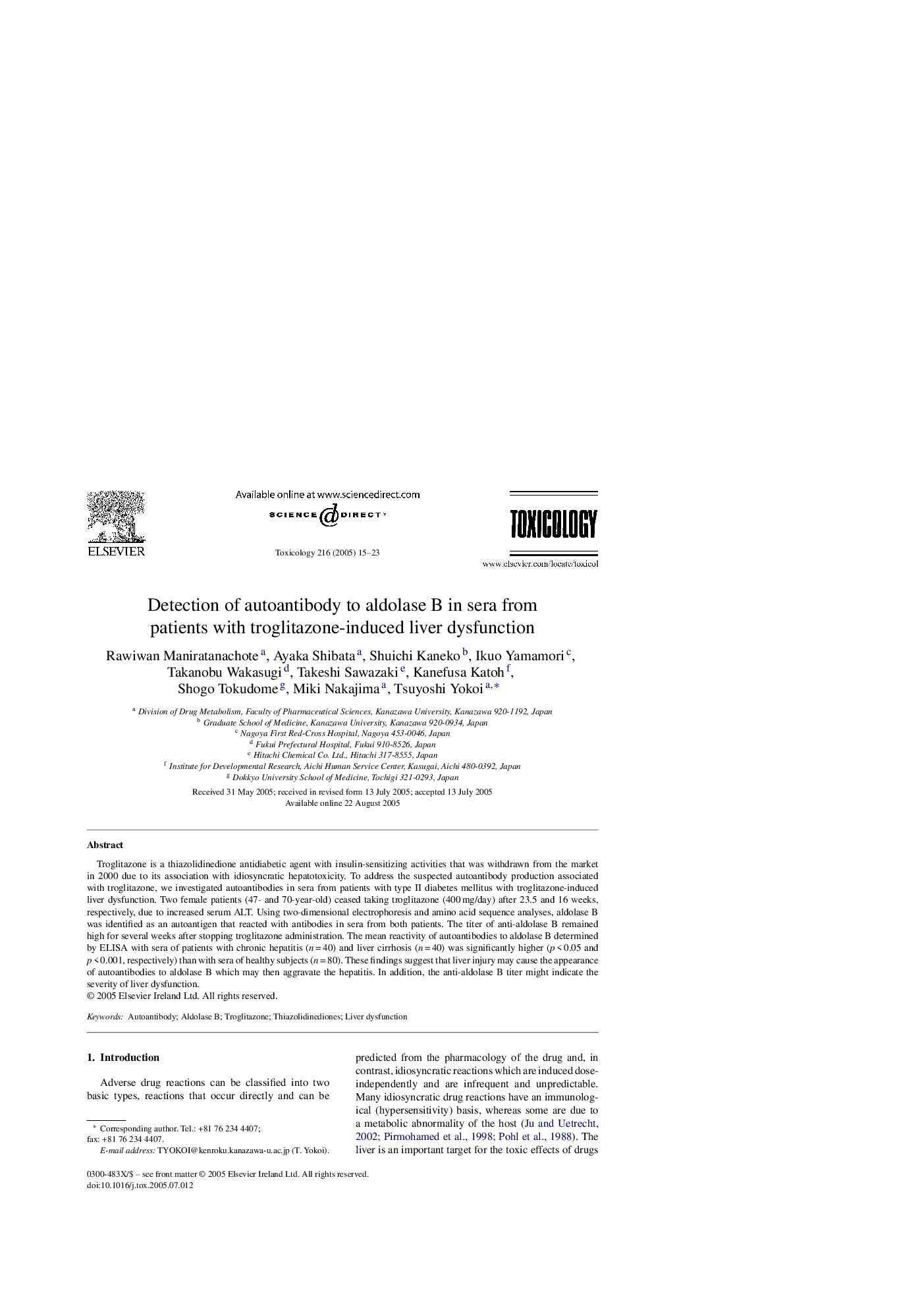| Article ID | Journal | Published Year | Pages | File Type |
|---|---|---|---|---|
| 9034828 | Toxicology | 2005 | 9 Pages |
Abstract
Troglitazone is a thiazolidinedione antidiabetic agent with insulin-sensitizing activities that was withdrawn from the market in 2000 due to its association with idiosyncratic hepatotoxicity. To address the suspected autoantibody production associated with troglitazone, we investigated autoantibodies in sera from patients with type II diabetes mellitus with troglitazone-induced liver dysfunction. Two female patients (47- and 70-year-old) ceased taking troglitazone (400 mg/day) after 23.5 and 16 weeks, respectively, due to increased serum ALT. Using two-dimensional electrophoresis and amino acid sequence analyses, aldolase B was identified as an autoantigen that reacted with antibodies in sera from both patients. The titer of anti-aldolase B remained high for several weeks after stopping troglitazone administration. The mean reactivity of autoantibodies to aldolase B determined by ELISA with sera of patients with chronic hepatitis (n = 40) and liver cirrhosis (n = 40) was significantly higher (p < 0.05 and p < 0.001, respectively) than with sera of healthy subjects (n = 80). These findings suggest that liver injury may cause the appearance of autoantibodies to aldolase B which may then aggravate the hepatitis. In addition, the anti-aldolase B titer might indicate the severity of liver dysfunction.
Related Topics
Life Sciences
Environmental Science
Health, Toxicology and Mutagenesis
Authors
Rawiwan Maniratanachote, Ayaka Shibata, Shuichi Kaneko, Ikuo Yamamori, Takanobu Wakasugi, Takeshi Sawazaki, Kanefusa Katoh, Shogo Tokudome, Miki Nakajima, Tsuyoshi Yokoi,
